- Home
- Elizabeth Bear
The Tempering of Men Page 2
The Tempering of Men Read online
Page 2
One of the sledge reindeer had died in the night; by the time Isolfr’s shieldbrother Kari found it and brought Skjaldwulf out to see it was already frozen almost too stiff for butchering. Mittened hands pulled into the sleeves of his coat, Skjaldwulf frowned into the fur of his hood and shuddered.
“I hope its heart gave out,” he said, unwilling to contemplate an army at the mercy of cold intense enough to drop a reindeer in its tracks. He sent Kari to fetch svartalfar to handle the butchering. Their knives were better, and the smiths and mothers would see the meat equally distributed. Skjaldwulf was developing the beginnings of an appreciation for the svartalfar’s sense of fair dealing, uncompromising though it was.
This particular alf was named Iolite, which if Skjaldwulf had the convention right meant it was a male—not that that seemed to matter, to svartalfar, except in that females had two means of attaining the highest ranks of the council, and Skjaldwulf thought the most important were both smiths and mothers.
In any case, Iolite was neither a smith nor a mother. He seemed young, his teeth not yet etched with elaborate inlaid decorations, the hands at the ends of his spidery limbs smooth-nailed and quick when he eased off his mittens. The alfar also seemed less susceptible to the cold than men, and Skjaldwulf watched with curiosity as Iolite handled the knife bare-fleshed in chill that would have blackened Skjaldwulf’s flesh in minutes.
Skjaldwulf was not so strong as an alf, either, but Iolite seemed happy when Skjaldwulf grasped the reindeer’s legs and pulled it onto its back, belly exposed to the sky for butchering. Gelid blood clotted Iolite’s knife as he cut from the genitals to the sternum without puncturing the entrails. Pale intestines and blood-dark liver flopped loose, oozing from the wound as Iolite snaked an endless arm up behind them to cut free the diaphragm and esophagus.
Trellwolves were already gathering in a respectful circle, their coats so dense they seemed more like animate clouds of thistledown than enormous gaunt predators. Skjaldwulf recognized Mar, Guthleifr, Kari’s Hrafn—almost as black as Mar but smaller—and a half-dozen from alien wolfheallan. At a glance from Iolite, Skjaldwulf rolled the reindeer onto its side, spilling the guts on stained snow. Now Iolite reached inside the pelvis, cutting the anus and genitals free.
Mar whined, elbows hovering above the snow. Under that thick fur, Skjaldwulf knew Mar was painfully skinny—skinnier than he should have been, with so many months of winter still to come. The wolves lingering behind him were in no better condition.
Neither, truth to tell, was the dead reindeer, but there was meat still on it.
Skjaldwulf wiped his mitten across his frosted beard. Frozen and dried blood from the liver of yesterday’s deer crumbled and caught in the yarn: he rubbed his palm clean on the reindeer’s leg. “Iolite,” he said, catching himself before he called the svartalfar “Master.” “Divide this meat among the wolves, please? Everything but the intestines. They can have the hide and legs, too.”
Iolite glanced up from his bloody work and made a good attempt at a svartalf elder’s somber frown. “I’ll see it done.”
Leaving Mar to his breakfast, Skjaldwulf shuffled off through packed snow, in search of Vethulf, recognizable by his buff-colored hide hood. The other wolfjarl was moving from campfire to campfire, speaking with men as his brother spoke with wolves, making sure of everyone’s health and strength—making them laugh, even, which was something neither Isolfr nor Skjaldwulf himself could have managed right now. For a moment, Skjaldwulf stood with his arms folded and watched.
His attention must have drawn Vethulf’s notice, because between conversations Vethulf turned to him and caught Skjaldwulf’s gaze, raising his chin challengingly. Skjaldwulf bit back hard on a momentary flare of irritation and came down a little slope. He took Vethulf’s sleeve and turned him aside, leaning their hooded heads together. “We need to start butchering the reindeer.”
“We’ll have to pull the sledges ourselves,” Vethulf said, but he didn’t argue. Nor did he suggest that perhaps the svartalfar could help out by butchering a few of their shaggy dwarfish ponies, for which Skjaldwulf was grateful.
“Us and the wolfthreat.”
“Right.” Vethulf leaned back, his mittened hands thrust up his sleeves for a little additional warmth. Snow creaked under his boots: here in camp, it was packed enough that he didn’t absolutely need snowshoes or skis. “I’ll tell Grimolfr.”
* * *
Trellwolves were more sensitive to scent than men, but even Vethulf could smell Othinnsaesc before the Wolfmaegth heard the sea, for all that winter had frozen the stench of unburied corpses. On a night shortly before the solstice, after slaughtering the first three trellish sentries they came upon, the army camped inside the woods, a mile or so from the border of hewn trees their scouts reported.
Vethulf joined the wolfjarl of Nithogsfjoll, grizzled and wiry Grimolfr, in picking his way silently and without lights to the edge of the trell-harrowed lands. Across a rude clearing leading down to the cliffs over the sea, the smoke of trellish fires was almost invisible on a blackened sky. Two wolfjarls stared unhappily at the smudges blurring crystal stars.
The sun-turning was upon them. Vethulf could not shake the sense that if only they could hold on until its return, it would prove an omen of survival.
“They’ve marked out the boundaries,” Grimolfr said. “They’re burning our woods.” Weariness made his voice crack and sag in the middle.
Vethulf understood. He couldn’t muster much outrage himself, or much emotion besides grim resignation. They had come this far, and they would fight now. It was as inevitable as snow. “It saves us time,” he said. “We won’t have to kindle our own bonfires to burn them out.
“Skjaldwulf will be pleased,” Grimolfr said.
Vethulf snorted. If it made a good story, Skjaldwulf would like it.
Grimolfr said, “I hope we got all the sentries.”
It wouldn’t matter. The trolls had to know they were coming.
“I don’t fancy fighting a whole warren of trolls in the dark,” Vethulf offered.
Grimolfr’s mouth worked behind his scarf. “There won’t be a morning,” he said. “And the dark is when we fight trolls. Come on. You post sentries and collect the jarls. I’ll gather the wolfheofodmenn and the smiths and mothers. We’ll go in as soon as we can form up. There’s no sense in giving the trolls time to tunnel under and flank us.”
* * *
The wolfless men camped on the left flank of the army, and their sentries knew the wolfheofodmenn of the army by sight. Vethulf was ready for the usual mutters and sneak-eyed glances, but this fur-swaddled sentry greeted him with a raised hand. “Wolfjarl,” he said. “Are you looking for the other wolfcarl?”
“I was looking for the night heofodman,” Vethulf said. “Which other wolfcarl?”
“Yellow-bearded and about as tall and old as you. The wolf was a tan bitch, gray around the neck. He wanted the heofodman, too.”
Vethulf nodded approval of the sentry’s sharp eyes and made a point of remembering the man’s face. Even now, most wolfless men heeded only the man and did not look at the wolf. And Vethulf recognized the description of the wolf more surely than the description of the man. Blond men there were aplenty, but wolf-bitches were a different matter.
Randulfr and Ingrun. A wolfcarl and subordinate bitch of Isolfr’s former threat. What would they want with wolfless men? Vethulf found that he did not like mysteries in the approach to a battle. If Kjaran had been with him, his hackles might have spiked at Vethulf’s rising irritation. As it was, Vethulf shrugged himself tighter in sweater, tunic, coat, and cloak. He stamped his feet to shake the snow from his calf-wrappings and warm the blood in his feet; he was more successful at one thing than the other. “If it was the heofodman he sought, then I may accomplish two errands in one. Who and where?”
“He’s with Fargrimr Fastarrson, the heir of Siglufjordhur,” the sentry said. Siglufjordhur was a big southern keep, far down the peninsula in what Vethul
f had heard were impossibly temperate climes—four months of winter, no more, and only a week dark at the heart of it. “Head northwest. About a quarter hour’s walking.”
Vethulf was three steps away when he remembered himself. “Thank you,” he said over his shoulder. “Othinn guide your hand.”
The sentry nodded in return. “Othinn guide your hand, wolfjarl.”
As the sentry had promised, the walk was short—even less than a quarter hour. Vethulf passed several campsites, and at each the wolfless men were unwontedly polite. A close and common enemy made for quiet camps. At the last fire Vethulf walked by, the jarl of Siglufjordhur’s graybearded housecarl told him the jarl’s fire was the next. “But the jarl’s asleep.”
“I’m to speak with the son,” Vethulf said.
The housecarl snorted. “Well, all right. But I’ll wager he’s not your type.”
Vethulf’s arms crossed as his spine drew itself erect. Bilious words scorched his throat, but he bit down on the inside of his cheek and rebuked himself, What would Isolfr say if he saw you screaming like a fishwife at some wolfless man?
“I’ll wager you’re right,” Vethulf snarled, and turned as crisply as he could in snowshoes to stalk across trammeled drifts to the next fire.
He could make out Randulfr and Ingrun at their ease on skins beside a shielded fire, and a lean, sword-wearing man dressed in well-sewn seal fur seated beside them. As Vethulf entered the ring of light, both men and the wolf looked up. Vethulf suddenly understood the housecarl’s amusement.
The face over the seal fur collar was beardless, framed by hard blond plaits that sharpened its features but could not coarsen their delicacy. Fargrimr Fastarrson was either a very pretty, very young boy—or he wasn’t a man born at all.
Vethulf’s hesitation and confusion must have been obvious, because Randulfr popped to his feet while Ingrun’s tail waved negligently once or twice. “Vethulf,” he said, with every indication of delight. “Are you looking for me? This is my brother, Fargrimr. He became my father’s heir when I went to the tithe. Grimi, this is Vethulf Kjaransbrother, Franangford’s wolfjarl.”
“So it was your yard we cleaned the trolls from,” Fargrimr said. “I’d wondered whose mean huswifery that was.”
Perhaps the words should have offended, but rather than being mocking, Fargrimr’s teasing invited camaraderie. The voice was high and sweet, but the intonation was a man’s. Vethulf fought the urge to shake his head like a wolf to clear his ears.
“It wasn’t mine when the trolls moved in,” Vethulf said. “I just inherited the problem.”
Randulfr extended a hand to clasp. Vethulf put his own hand in it and let Randulfr transfer the clasp to Fargrimr’s, once Fargrimr had dusted the snow from his trews and bindings. He had a good grip, solid and meaningful through his mittens, hard from the sword.
In the southern lands where there were no trolls, it was not entirely unheard of for a man without sons to make one. An unlucky sire could choose one of his daughters as heir and raise her as a sworn-man, a functional son. Such a girl never grew to be a woman; instead, she grew to be a man. She would take a man’s name and would not marry, though some took girls as lovers, and thus she could head her father’s household when he died. Upon her passing, one of her—his—sister-sons could then inherit. Sworn-men supposedly submitted to a course of herbs and surgeries that would unwoman them, but on the evidence of his eyes Vethulf thought that might be slander. The furs were thick, but Vethulf could see no sign that Fargrimr, at least, had had his breasts burned from his body.
Vethulf had also heard that there were four or five sworn-men with the company of wolfless men—one an archer who had died in Franangford, as it happened—but he hadn’t realized any ranked.
“I didn’t know you were a southerner,” Vethulf said to Randulfr, so he wouldn’t stare at Fargrimr’s chest. “You don’t have an accent.”
Randulfr extended his right arm through the gap in his cloak and shoved up the nested sleeves of his coat, sweater, surcoat, and tunic to expose a naked white arm. “No tattoos, either. I went to the heall too young.”
Beside his brother, Fargrimr also stripped his sleeve, showing—by contrast—muddy wriggling swirls of blue-green wode and hairless forearms banded with muscle like barrelstaves.
“His fault,” Fargrimr said, fondly, and punched his brother. “I would have had washerwoman calluses, instead of learning the axe.”
“I was born Fasti Fastarrson,” Randulfr said. “Someday I’ll tell you how I wound up in the borderlands. It’s a long story, involving a trade negotiation and a young wolf-bitch who tagged along with her mother after being told to stay home.” He grinned at Ingrun, who had sprawled on her side as if the snow were a featherbed, her feet extended toward the coals. “But you have the look of a man with a message, wolfjarl.”
“I’ve come to speak to your brother, actually,” Vethulf said. “Fargrimr, I am sent by Grimolfr to pass the word: the heofodmenn of the wolfless men are summoned immediately to a council of war.”
TWO
As Grimolfr and the season predicted, there was no dawning, but nevertheless the torches of the Wolfmaegth almost sufficed to stain the deep-blue sky in crimson. Vethulf stood with his brothers of the wolfthreat and werthreat, awkward at the back of the human and svartalfar army. The svartalfar had insisted on the honor of the vanguard. When Grimolfr and Gunnarr Sturluson protested, the foremost smiths and mothers of the svartalfar had been polite but adamant. The svartalfar were guests of the men, and they would fight at the front. Furthermore—as Tin, the mastersmith who had befriended Vethulf’s wolfsprechend, Isolfr, pointed out—her people did not rely upon torches to see in the dark and so should have the lights at their back, where they would blind the trolls but not the svartalfar.
The light of the men’s torches still revealed the svartalfar, though—their hunched backs draped in cloaks worked with elaborate quilting; richly, raggedly decorated in subtle rusts and umbers; mail and weapons showing the dull glint of oiled steel. Some of the svartalfar stood no higher than a man’s waist and the tallest were only eye to eye with a trellwolf, but their legs bent strangely under the skirts of their hauberks, and when their arms extended, their reach was half again Vethulf’s span.
Behind the svartalfar were ranked the wolfless men, Gunnarr the jarl of Nithogsfjoll and his warriors and all the rest of the jarls and their men. Here again the trolls had done them a favor, because the hewn trees, trammeled snow, and scraped-clear hillsides made it easy for the wolfless men to line up shoulder to shoulder, lock shield-edges and advance in a double-rank. Boys and old men not strong enough for service under arms stood behind them, bearing spears and torches.
Down the slope from the crest of the hill to the seacliffs, Vethulf could see the tumbled walls and ruins of what had been Othinnsaesc. Trellfires blazed at the boundaries, glittering on drifts slumped over broken stones.
It griped Vethulf for wolfcarls to fight behind wolfless men when trolls were the enemy, but the wolfcarls were sortie fighters, and a shield wall was only as effective as its cohesion. Somewhere among those wolfless men were Fargrimr and the other two surviving sworn-sons. Vethulf allowed himself a moment of pity for the father of the one who had fallen, who must have burned all his born-male heirs and also now had lost the sworn-male one. Perhaps there were sister-sons to stand the family’s obligations.
Perhaps.
Vethulf shook his head. Many fathers had lost sons and sons had lost fathers. Tonight—unless it was today, and who could tell, in the bleakness of midwinter?—there would be more. Beside him, Kjaran whined, reading Vethulf’s distress as plainly as the wind, and shifted his paws uneasily. Vethulf leaned his hip on the wolf’s shoulder in apology. No warmth penetrated either his woolens and furs or Kjaran’s coat, but the contact was comforting. He wanted to strip off a gauntlet and bury his fingers in the wolf’s thick ruff, but the cold was too dangerous and the fight was at hand.
He hoped. The worst part
of organized action was the waiting.
All around him, men and wolves groaned and fidgeted. The Franangfordthreat surrounded Vethulf and Kjaran, stretching off to the left where Skjaldwulf and Mar made a lynchpin for the southernmost flank of the Wolfmaegth. Only half the Wolfmaegth moved with the svartalfar and the wolfless men. The rest were with Grimolfr, circling wide to the south.
Vethulf felt them and all the rest of his brethren through the pack-sense. Waves of disquiet and eagerness flowed through them, a tumult of conflicting desires. But a driving purpose underlay that, and Vethulf knew that once battle was joined, the Wolfmaegth’s passion would be unified.
A cry went up from the back of the press, the howl of wolves and the bellow of men, the horrid ecstatic clatter of axes on bucklers and breastplates. The rearguard was in place. The clamor swept forward, and as the cry reached Vethulf he took it up, head thrown back, Kjaran howling beside him, the press of trellwolf and wolfcarl bodies on each side rocking forward and back in abrupt eagerness. The waiting wore men down, made their bones ache with anxiety, until the splashing terror of open war could come as a relief.
Vethulf shouted his throat scraped and hot, Kjaran rearing up beside him to paw the air like a striking stallion. Far to the front, the dark glitter of torchlight reflected on svartalfar halberds wavered as the forest of weapons dipped forward and the svartalfar tumbled downslope like an avalanche.
Behind them, the torches of the wolfless men dipped and fluttered, following. Then Vethulf was running, too, the axe swinging comfortably in his hand, Kjaran’s feet silent and his tongue lolling between dagger teeth as he paced alongside. Trolls poured out of the warren below. Vethulf ran harder, each bounding downhill step jarring his legs to the hip. He had to check himself as he overran the wolfless men’s line. As the armies of the humans and alfar poured down the slope, he kept an eye on the woods to the south. Trolls moved underground as easily as fish through water, and there was another logic to placing the wolfcarls in the rearguard.

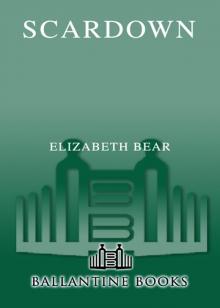 Scardown
Scardown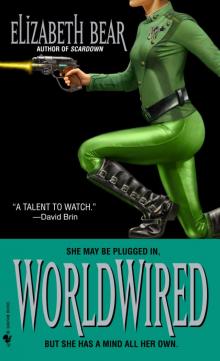 Worldwired
Worldwired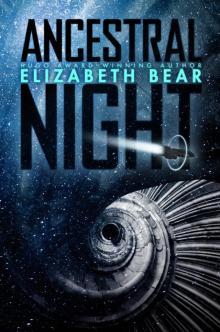 Ancestral Night
Ancestral Night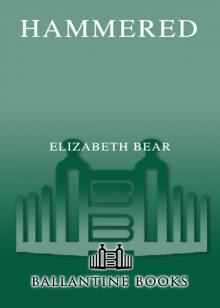 Hammered
Hammered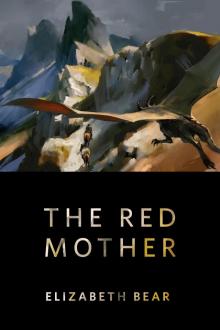 The Red Mother
The Red Mother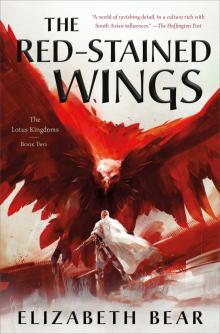 The Red-Stained Wings--The Lotus Kingdoms, Book Two
The Red-Stained Wings--The Lotus Kingdoms, Book Two Machine
Machine Some of the Best from Tor.com: 2019 Edition
Some of the Best from Tor.com: 2019 Edition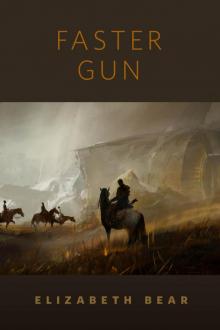 Faster Gun
Faster Gun In the House of Aryaman, a Lonely Signal Burns
In the House of Aryaman, a Lonely Signal Burns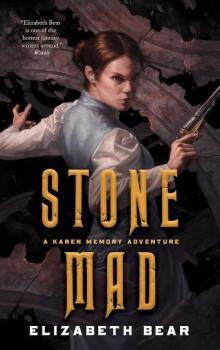 Stone Mad
Stone Mad Robots: The Recent A.I.
Robots: The Recent A.I.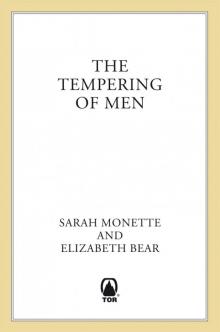 The Tempering of Men
The Tempering of Men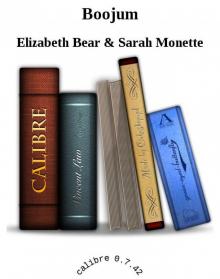 Boojum
Boojum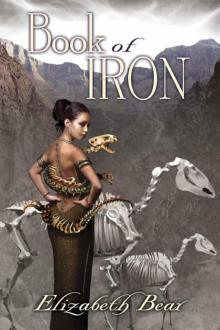 Book of Iron bajc-2
Book of Iron bajc-2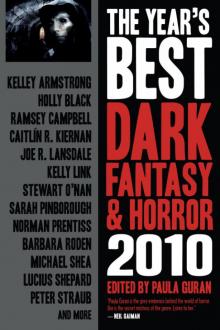 The Year's Best Dark Fantasy and Horror, 2010
The Year's Best Dark Fantasy and Horror, 2010 New Cthulhu 2: More Recent Weird
New Cthulhu 2: More Recent Weird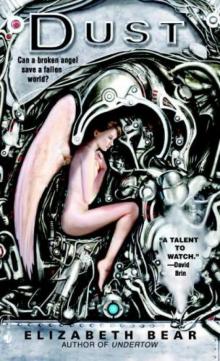 Dust jl-1
Dust jl-1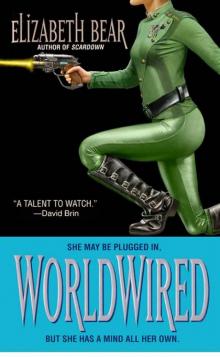 Worldwired jc-3
Worldwired jc-3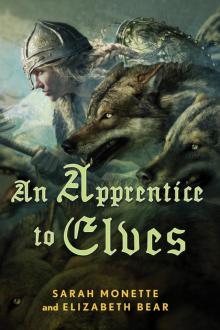 An Apprentice to Elves
An Apprentice to Elves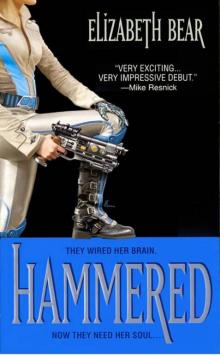 Hammered jc-1
Hammered jc-1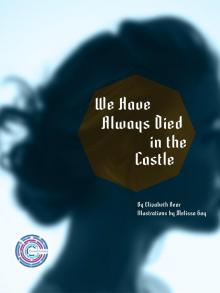 Crowd Futures: We Have Always Died in the Castle
Crowd Futures: We Have Always Died in the Castle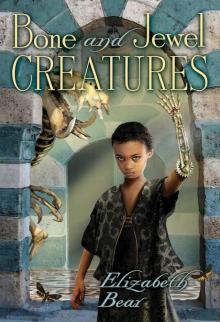 Bone and Jewel Creatures bajc-1
Bone and Jewel Creatures bajc-1 Carnival
Carnival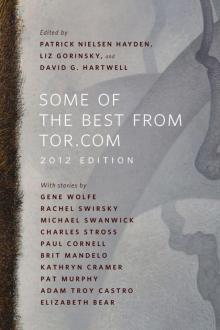 Some of the Best from Tor.com: 2012 Edition: A Tor.Com Original
Some of the Best from Tor.com: 2012 Edition: A Tor.Com Original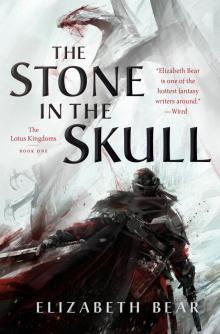 The Stone in the Skull
The Stone in the Skull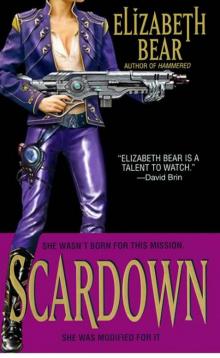 Scardown jc-2
Scardown jc-2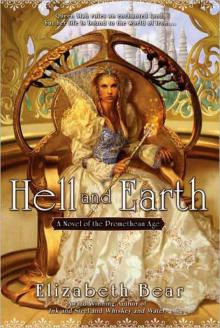 Hell and Earth pa-4
Hell and Earth pa-4 Undertow
Undertow Mermaids and Other Mysteries of the Deep
Mermaids and Other Mysteries of the Deep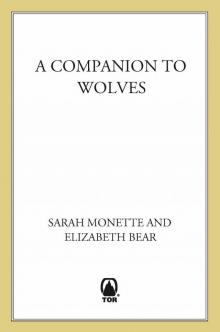 A Companion to Wolves
A Companion to Wolves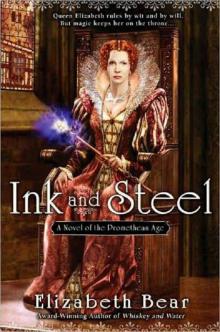 Ink and Steel pa-3
Ink and Steel pa-3